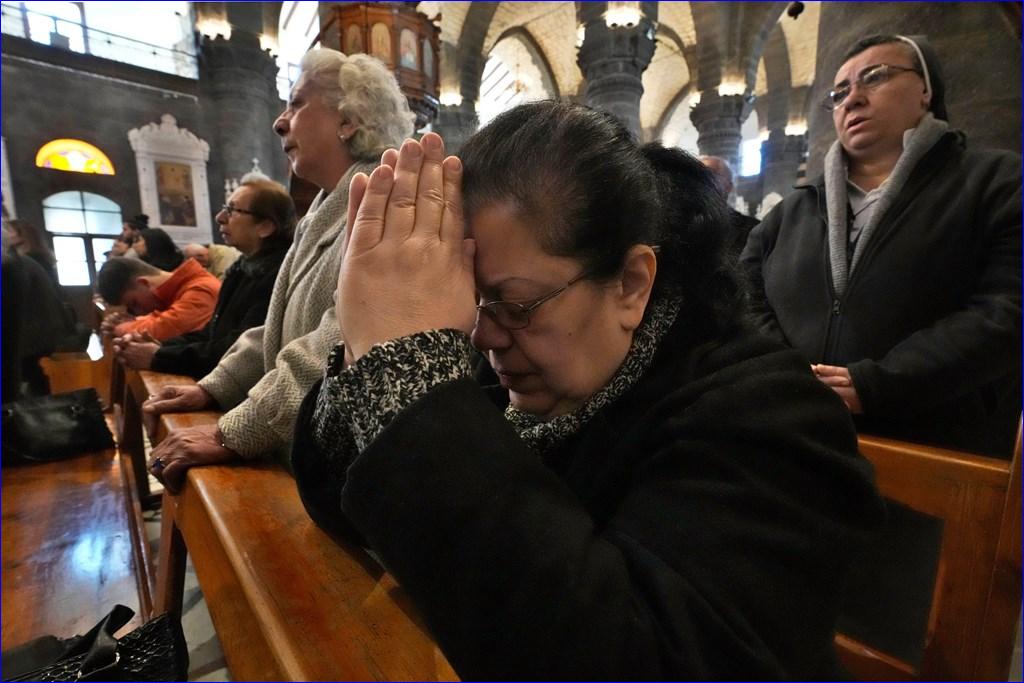


A statement from the Patriarchate urged Christians still in the country -- about 300,000, it is believed -- to continue to fast and pray. It urged the new leadership to affirm religious freedoms, and called on the international community to monitor them.
Related: Timeline of ISIS in Iraq
Related: Attacks on Assyrians in Syria By ISIS and Other Muslim Groups
"The Church will not spare any effort in supporting its children and advocating for their rights. She will not accept any form of mistreatment or abuse of their rights. The Church calls upon civil and international bodies to follow up these procedures and steps that lay the foundation for a new Syria. At the same time, the Church stands ready to engage with all Syrians and to cooperate with all those who seek the good of the country, and extends a helping hand to all to contribute towards the reconstruction of the country."
The statement also condemned Israel's "violation of the sovereignty of Syria" with its occupation of a border buffer zone on the Golan Heights.
In a post accompanying the statement on X, Patriarch Mor Ignatius Aphrem II quoted a verse from Philippians: "Do not be anxious about anything, but in every situation, by prayer and petition, with thanksgiving, present your requests to God."
Israel has bombed what it said were weapon depots in Syria, and has approved a plan to encourage the expansion of settlements in the Golan Heights, which are considered illegally occupied under international law.
Many Syrian Christians are still uncertain about their future under the new government.
In Idlib province, which the Islamist group who led the insurgency, Hayat Tahrir al-Sham (HTS), has run since 2019, Christian services are allowed, but the ringing of church bells is forbidden.
In Aleppo, however, the first city to be taken by the rebels in their march on Damascus, bells have continued to ring, and the leader of the HTS has continued to promise that the Christian and Alawite minority faith groups will be protected.
A spokesman for the new transitional government said that Syria was open to, and would look to build good relationships with, the wider world.
Aid was still getting into Syria, the Vatican mission to Lebanon, Syria, and Egypt confirmed. It reported that partners on the ground regarded the situation as stable.
The mission's regional, Michel Constantin, said that church officials were "assured . . . that the new authority on the ground will be committed to providing all protection to all citizens, and especially the Christians".
After years of civil war, 90 per cent of Syrians are in poverty, and 16.7 million are in need of humanitarian aid, the aid agency CAFOD says.
President Bashar al-Assad posted his first statement since he fled Syria on his Telegram channel on Monday, saying that his departure to Russia, where he has been granted asylum, was not pre-planned. The evacuation was carried out by the Russian military after its base came under attack, he said.
The Awareness Foundation, a humanitarian and educational charity that operates in the Middle East, said that the Christian community was fearful, but no acts of violence had been reported against them in Aleppo, the first city to fall to the rebels. Its Ambassadors for Peace programme works with young adults to build bridges across diverse communities, and it had been overwhelmed, it said, with their response, as they formed networks to support one another. Syria is one of the most religious and ethnically diverse countries in the Middle East.
The executive director of the Awareness Foundation, the Revd Dr Nadim Nassar, said: "After the dark times of the Assad regime, we continue to hope for a new chapter of peace and prosperity for the Syrian people, who have suffered so much. Everyone wants to see the withdrawal of foreign-led armies, allowing them self-determination to find a political system that respects all Syrians, whatever their ethnic or religious backgrounds.
"Healing is needed now more than ever. And we will work harder than ever to support them with our programmes that seek to build lasting peace through education, overcoming difference, and uniting all for a better future."
The Acting Primate of Canada, the Most Revd Anne Germond, wrote to the Archbishop in Jerusalem, Dr Hosam Naoum, on Thursday of last week, saying: "On behalf of your friends in the Anglican Church of Canada, I write to assure you of our continued prayers following the recent events in Syria, including the departure of President Bashar al-Assad. We recognize the profound uncertainty and potential challenges this moment brings, and we stand in solidarity with you and the communities you serve during this tenuous time. . .
"We pray for the peace of Christ to dwell richly among you. May his presence bring hope to those feeling the weight of fear and anxiety, and may the Spirit guide you and your clergy as you offer pastoral care and leadership to your people."

or register to post a comment.